
Our professional team will support you to go further!
Get a Quote. Ask a Question. We respond within 10 to 15 minutes during business hours.
protein supplement manufacturer

A powder supplement is a finely ground dietary product designed to be mixed with liquids like water or juice for consumption. Unlike softgels or capsules, powders offer highly concentrated doses and flexible serving sizes, making them popular in sports nutrition, weight management, and general wellness. They’re often favored for their faster absorption, ease of consumption, and ability to deliver a wider range of active ingredients per serving.
Gensei stands as a pioneering leader in powder supplement manufacturing, renowned for our unrivaled formulation expertise and cutting-edge production capabilities. Our seasoned R&D team crafts highly effective, stable, and palatable powder blends, ensuring optimal ingredient synergy and bioavailability. Operating advanced, cGMP-compliant facilities, we guarantee exceptional product homogeneity and consistent nutrient content in every batch, from initial pilot runs to large-scale mass production, all while adhering to the most stringent quality control and regulatory standards.
Types and Pros & Cons of Protein Supplements
As a great protein powder brand, you first need to know the differences between various types of protein powder in order to make the most accurate choice.
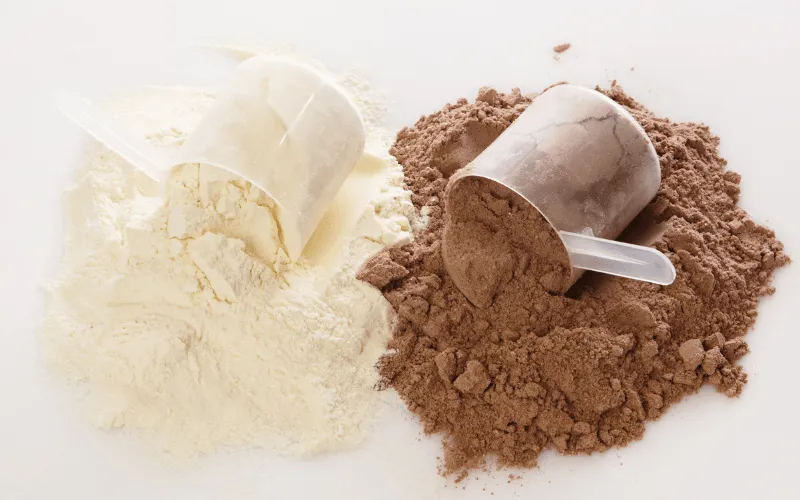
| Type of Protein | Key Characteristics | Pros (Advantages) | Cons (Disadvantages) | Best For |
|---|---|---|---|---|
| Whey Protein | Derived from milk during cheese production. Fast-digesting and absorbing. Complete protein, high in BCAAs (especially Leucine). | Rapid absorption, ideal for post-workout muscle recovery and growth. Promotes muscle protein synthesis. Widely available in many flavors, easy to mix. Often contains immune-boosting compounds. | Contains lactose, which can cause digestive issues (bloating, gas, diarrhea) for lactose-intolerant individuals. Not suitable for milk allergy sufferers. Generally higher in price. | Fitness enthusiasts (especially post-workout), individuals needing quick protein intake, general healthy population. |
| Casein Protein | Derived from milk, making up 80% of milk protein. Slow-digesting and absorbing, forms a gel in the stomach. | Sustained, slow release of amino acids, providing prolonged protein supply for overnight muscle repair and anti-catabolism. High satiety, beneficial for weight management. Ideal for before bed or between meals. | Slow digestion not suitable for immediate post-workout needs. Contains lactose, potentially problematic for lactose-intolerant individuals. Not suitable for milk allergy sufferers. | Individuals needing sustained protein release (e.g., before bed), those seeking increased satiety for weight management. |
| Soy Protein | Plant-based protein derived from soybeans. Complete protein (contains all essential amino acids). Available in concentrate or isolate forms. | Plant-based source, suitable for vegetarians and vegans. Lactose-free and cholesterol-free. May offer heart health benefits (lowering LDL cholesterol). Often more cost-effective than whey. | Contains phytoestrogens (isoflavones), which some individuals have concerns about. Taste/texture may not be as smooth as whey. Potential allergen for those with soy allergies. | Vegetarians/vegans, lactose-intolerant individuals, those concerned with heart health. |
| Pea Protein | Plant-based protein derived from yellow peas. Nearly complete protein, contains all essential amino acids. | Hypoallergenic plant-based source, suitable for vegetarians, vegans, and those with dairy, soy, or gluten allergies. Generally easy to digest. Provides good satiety. Environmentally sustainable. | Relatively lower in some amino acids (e.g., methionine), often best combined with other plant proteins. Can have an earthy or slightly grainy taste/texture. May contain relatively higher sodium. | Vegetarians/vegans, individuals with sensitivities or allergies to dairy, soy, or gluten. |
| Rice Protein | Plant-based protein derived from brown rice. Incomplete protein (low in lysine), often combined with pea protein. | Hypoallergenic, suitable for individuals with dairy, soy, or gluten allergies. Generally easy to digest. Plant-based source for vegetarians/vegans. | Incomplete protein, needs to be combined with other protein sources for a full amino acid profile. Can have a slightly gritty texture or cereal taste. Potential concern for heavy metal content (e.g., arsenic) depending on sourcing. | Vegetarians/vegans, individuals with multiple food allergies. |
| Hemp Protein | Plant-based protein derived from hemp seeds. Complete protein (contains all essential amino acids). Rich in fiber and Omega-3/6 fatty acids. | Plant-based source for vegetarians/vegans. High in dietary fiber, aiding digestive health. Contains healthy fatty acids. Generally easy to digest. | Protein content per serving can be relatively lower. Often has a distinct earthy or nutty taste. Can be more expensive. | Vegetarians/vegans, those seeking a whole-food, high-fiber protein source. |
| Beef Protein | Animal-based protein derived from beef. Complete protein, naturally lactose-free and gluten-free. | Animal protein option for lactose-intolerant individuals. Provides amino acid profile similar to traditional meat. Supports muscle growth and repair. | Not suitable for vegetarians/vegans. Taste can be less appealing and may require more flavoring. Less widely available than whey. | Athletes with dairy allergies/intolerance, individuals following a paleo diet. |
| Egg White Protein | Animal-based protein derived from egg whites. Complete protein with high bioavailability. | Complete amino acid profile and free from dairy components. Absorbs at a moderate rate, between whey and casein. Suitable for those with dairy allergies or intolerance. | Not suitable for vegetarians/vegans or those with egg allergies. Digestion is slightly slower than whey protein. Taste profile may not be as rich as some other proteins. | Individuals with dairy allergies or intolerance, those seeking a non-dairy animal protein source. |
Features of working with protein supplement manufacturer
Working with a protein supplement manufacturer offers numerous strategic advantages for brands looking to enter or expand in the market. Here are the key features and benefits you can expect:
Expertise and Formulation Development: A specialized protein supplement manufacturer possesses deep scientific knowledge in protein chemistry, blending, and flavor profiles. They can assist with custom formula development, optimizing ingredient synergy, solubility, and bioavailability. This includes R&D support for creating unique blends (e.g., specific whey ratios, diverse plant protein mixes) and developing palatable flavors that mask the inherent tastes of raw protein ingredients.
Quality Control and Regulatory Compliance: Reputable manufacturers adhere to stringent quality control protocols and Good Manufacturing Practices (GMPs). This ensures consistent product quality, purity, and safety from raw material sourcing to the finished product. They conduct comprehensive testing (e.g., for protein content, contaminants, heavy metals, microbiological safety) and ensure that your product’s labeling and claims comply with all relevant regulations (like FDA in the US), mitigating compliance risks for your brand.
Scalable Production and Cost Efficiency: Partnering with a manufacturer allows you to leverage their existing infrastructure, advanced blending equipment, and supply chain relationships. This eliminates the need for significant upfront capital investment in facilities and machinery. Manufacturers can also offer economies of scale by purchasing raw materials in bulk, leading to lower per-unit production costs. They provide scalable solutions, allowing you to increase or decrease production volume based on market demand without operational headaches.
Faster Time-to-Market: Contract manufacturers have established processes, skilled teams, and efficient production lines. Their experience in navigating the entire manufacturing lifecycle, from development to packaging, significantly reduces the time it takes to get your product from concept to consumer, providing a crucial competitive edge in a fast-paced market.
Diverse Packaging Solutions: Manufacturers offer a wide array of packaging options specifically designed for protein powders, including various sizes of tubs, jars, stand-up pouches, and single-serving stick packs. They can also handle custom labeling and branding, ensuring your product has a professional and appealing appearance on retail shelves or e-commerce platforms.
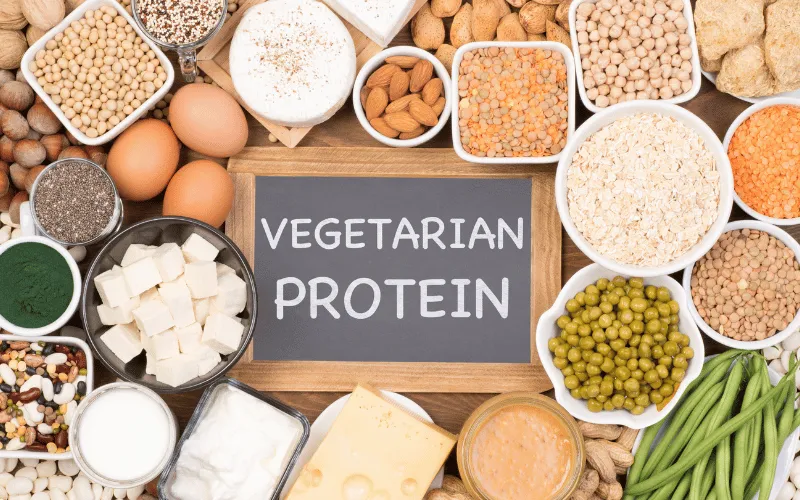
How Protein Supplement Manufacturing Works
1. Research & Development / Formulation
This initial stage involves conceptualizing the product, selecting protein types, sourcing high-quality raw materials, and developing the precise formula and flavor profile. Stability testing begins here.
2. Ingredient Sourcing & Quality Control (QC)
Raw protein powders, flavors, and other active ingredients are sourced from verified suppliers. Each incoming raw material undergoes stringent quality control testing for identity, purity, potency, and contaminants (e.g., heavy metals, microbes).
3. Blending & Mixing
Carefully weighed raw materials are precisely blended in large industrial mixers to ensure a homogeneous powder. This critical step ensures consistent nutrient distribution in every serving.
4. In-Process Quality Checks
Throughout the blending process, samples are taken and tested to verify consistency, pH, and other critical parameters before moving to the next stage.
5. Filling & Packaging
The blended powder is precisely filled into containers (tubs, pouches, stick packs) on automated lines. Containers are then sealed, capped, and labeled with product information, branding, and lot codes.
6. Finished Product Quality Assurance (QA)
Samples of the final packaged product undergo comprehensive testing, including final potency verification, microbial testing, and sensory analysis to ensure it meets all specifications and safety standards.
7. Warehousing & Distribution
Once approved, finished products are stored in climate-controlled warehouses, ready for shipment to clients or direct fulfillment to consumers.
Packaging Solutions for Protein Supplements
Gensei offers a variety of packaging options that are convenient and efficient. We typically fill jars, single dose packets, and even capsules. Our limitations are seemingly non-existent and we frequently work with our clients to meet specific needs and requests. After all, our approach revolves around product satisfaction and great service.
Whether you need large cases or jars or small single dose packets for easy distribution, we are able to adapt to your specific needs. At Makers Nutrition, we offer free protein supplement manufacturing quotes and look forward to discussing your individual needs. For more information, please contact us today.
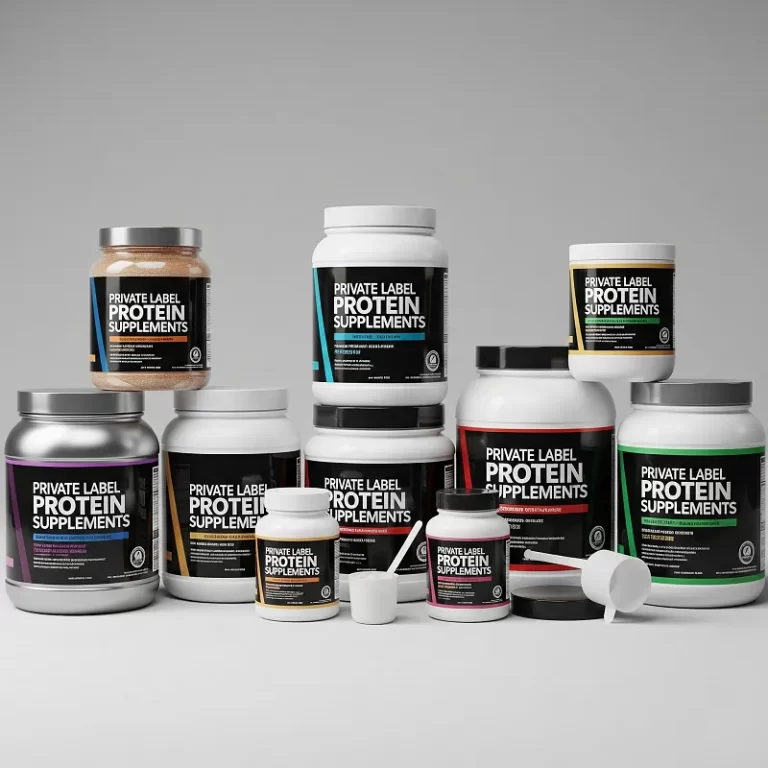
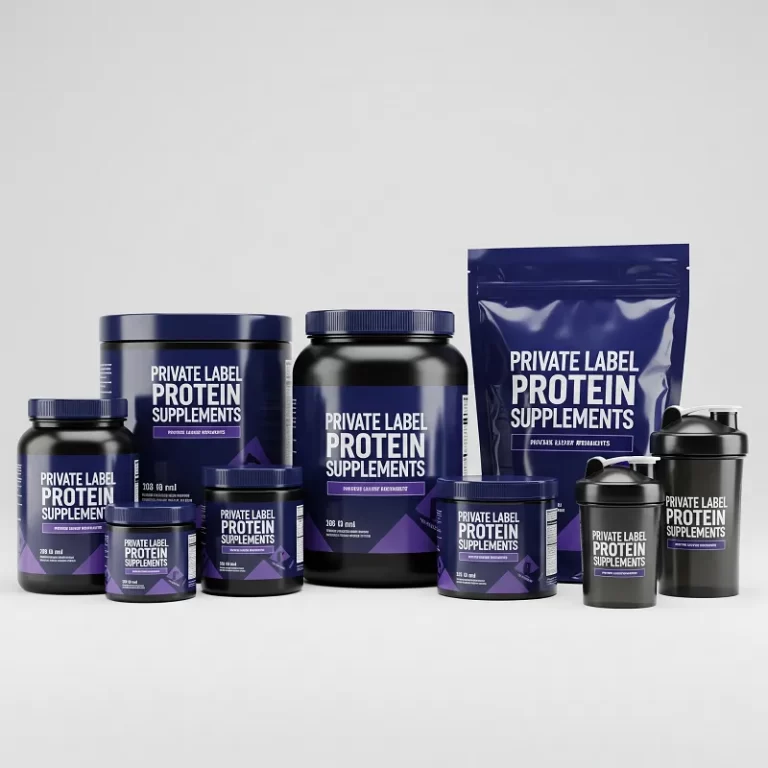
What Makes Us Unique As A protein supplement manufacturer?
We design your specific protein supplement with your whole business in mind. With Gensei, you’ll get a trusted supplement manufacturing team who knows the industry and how to deliver the best product for your brand.
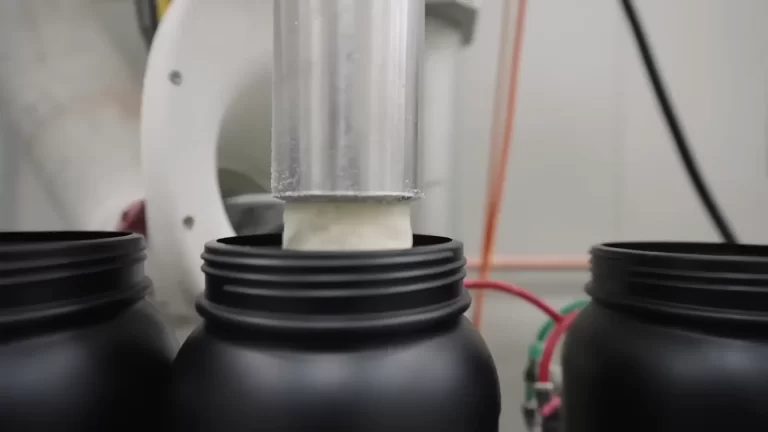
- Specialized Protein Formulation & Flavoring Expertise :A unique manufacturer boasts profound scientific knowledge in various protein types, enabling them to create highly effective and stable formulas. Crucially, they excel in flavor masking technology, skillfully hiding unpleasant tastes from raw ingredients and developing unique, palatable flavors that significantly enhance the consumer experience and boost brand loyalty.
- Advanced Blending Technology & Homogeneity Assurance :Achieving consistent product quality is paramount, and leading manufacturers invest in state-of-the-art blending equipment to ensure exceptional homogeneity in every batch. This guarantees that each scoop of your protein supplement contains the precise nutrient content, preventing clumping and uneven distribution, all backed by rigorous in-process quality checks for uniformity.
- Comprehensive Quality Control & Protein-Specific Certifications: Beyond standard GMP compliance, a top-tier manufacturer offers specialized quality control and holds crucial protein-specific certifications like NSF Certified for Sport®, USDA Organic, or Kosher. They implement multi-stage testing from raw materials to final product, often using third-party verification to ensure product purity, potency, and safety, addressing specific dietary needs and market demands.
- Flexible & Diverse Protein Raw Material Sourcing :A unique manufacturer provides access to a broad and reliable network of suppliers for diverse protein sources, including various whey types, a wide array of plant-based proteins (pea, rice, hemp), and specialty options like collagen or beef protein. This extensive sourcing capability allows brands to develop highly customized and unique protein blends that cater to niche markets or specific functional benefits.
- Scalability and Market Responsiveness for Protein Products: Leading manufacturers are designed for growth, offering flexible production capabilities that can handle everything from small pilot batches for new product launches to large-scale mass production as your brand expands. They understand the dynamic protein market, enabling quick adaptation to trends and efficient operations that reduce lead times, helping your product reach the market faster.

